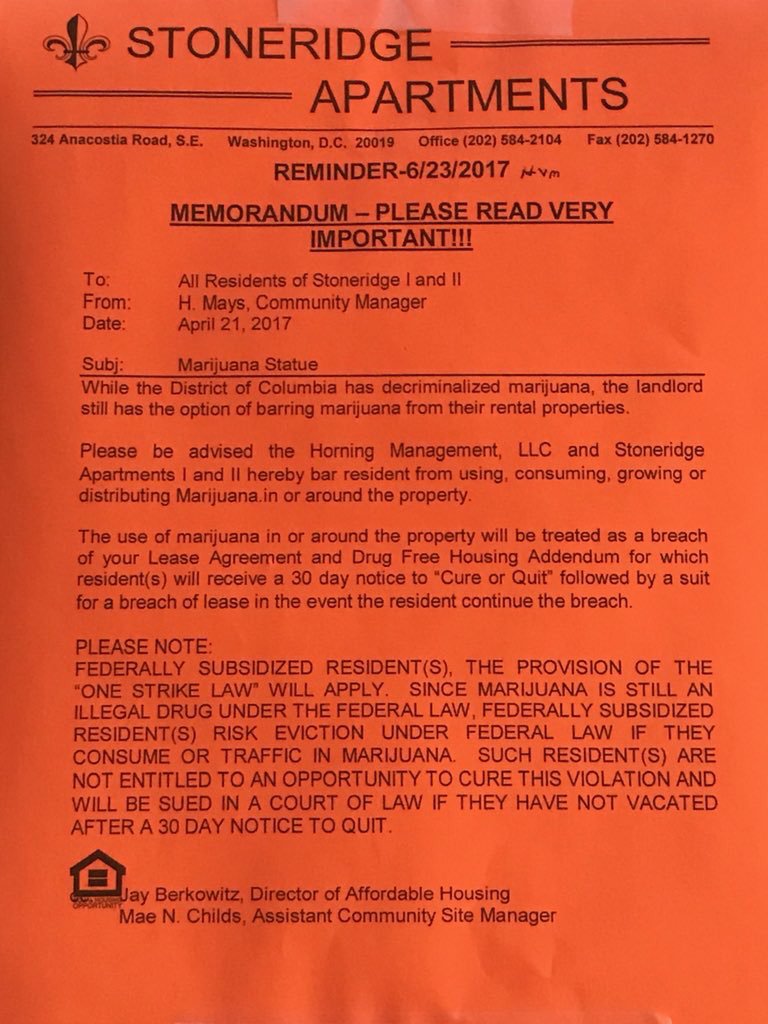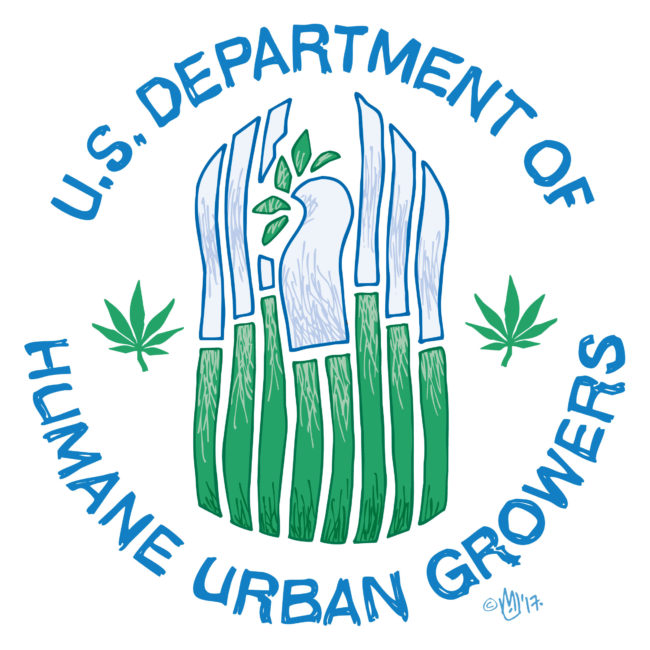Housing & Cannabis Policy in America

Initiative 71 allows residents of and visitors to the District of Columbia to possess, grow, and give a limited amount of cannabis to other adults. However, the District, like many other states that have legalized cannabis, is preempted by Federal Law, and Landlords who rent their properties can limit or prohibit a tenant’s adult use of cannabis, even for medical purposes, on their property. Individuals living in federal housing or public housing are restricted from using or cultivating cannabis on the premises, and can be evicted for doing so.
The U.S. Department of Housing and Urban Development (HUD) issued a memorandum in early 2011, clarifying that federal and state nondiscrimination laws do not require Public Housing Authorities (PHA) or owners of other federally assisted housing to accommodate the use of medical cannabis by current or prospective residents.
Presently, the Fair Housing Act, Americans with Disabilities Act, and Rehabilitation Act all expressly exclude illegal drug use, and a housing authority does not have a duty to reasonably accommodate a plaintiff’s medical cannabis use.
Cannabis users, growers, and their families are treated like second class citizens
Public Housing Authorities and owners are not required to accommodate the use of cannabis for medical purposes by the Americans with Disabilities Act (ADA) or Section 504 of the Rehabilitation Act. An individual using a controlled substance does not constitute a qualified individual with a disability under the ADA or Section 504. Courts addressing the issue have held that a health care professional cannot legally, under federal law, supervise use of medical cannabis so as to bring a resident within the protections of the ADA or Section 504. Nor is accommodation of medical cannabis use required by the Fair Housing Act (FHA).
Public Housing Authorities and owners of other federally assisted housing may deny admission to any prospective residents who, at the time of consideration for admission, use medical marijuana. However, Public Housing Authorities and owners have the discretion to either evict or to refrain from evicting current residents due to medical marijuana use.
Under 42 U.S.C. § 13662, a public housing agency or an owner of federally assisted housing, shall establish standards or lease provisions for continued assistance or occupancy in federally assisted housing that allow the agency or owner to terminate the tenancy or assistance for any household with a member who the agency or owner determines is illegally using a controlled substance or whose pattern of illegal use or pattern of abuse interferes with the health, safety, or right to peaceful enjoyment of the premises by other residents.
HUD’s “ONE-STRIKE” POLICY
The U.S. Department of Housing and Urban Development’s controversial “one-strike” regulation, C.F.R. 966.4, empowers local public housing authorities (“PHAs”) to terminate a resident’s tenancy for “any criminal activity that threatens the health, safety, or quiet enjoyment of the PHAs … premises … or (B) any drug-related criminal activity on or near the premises.” Section 966.4 extends far beyond evicting individuals for their own criminal actions; it creates a cause for termination of tenancy where a “tenant, any member of the household, a guest, or another person under the tenant’s control,” engages in criminal activity.
HOME SHOULD BE A SAFE PLACE
As long as cannabis is unfairly treated as a Schedule I substance under federal law, millions of Americans are at risk for eviction. This needs to end.
DCMJ is calling all cannabis crusaders to join us on Monday, April 2 organize rallies at your nearest public housing authority buildings to demand change!
Please fill out the Google Form below or email HUD@dcmj.org or call the DCMJ HUD Hotline (202) 733-4640
